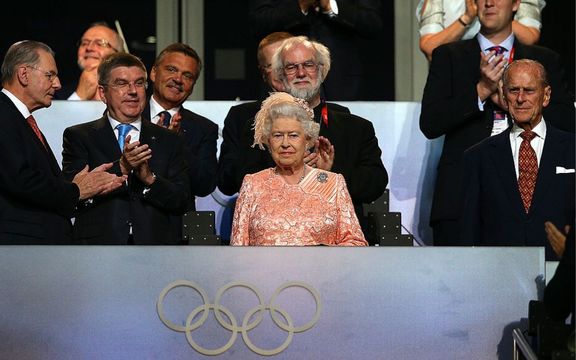
Queen Elizabeth II attends the Opening Ceremony of the London 2012 Olympic Games at the Olympic Stadium on July 27, 2012.Getty
Great Britain, a nation with a rich sporting heritage, has been a cornerstone of the modern Olympic movement since its inception.
Early Beginnings
Britain participated in the first modern Olympic Games held in Athens in 1896. Although the initial participation was modest, it set the stage for what would become a storied Olympic journey.
The Formative Years
In the early 20th century, British athletes began to make their mark on the global stage. The 1908 London Olympics, which Britain hosted, was a landmark event. These games were notable not only for their scale and organization but also for the dominance of British athletes, who topped the medal table with a haul of 146 medals, including 56 golds. This impressive performance included wins in traditional sports such as rowing, athletics, and cycling, showcasing the depth of talent across various disciplines.
Interwar Period and Post-War Resurgence
The interwar period was a time of consolidation for British sport. Despite facing stiff competition, British athletes continued to excel, particularly in athletics, swimming, and boxing. The 1924 Paris Olympics saw Harold Abrahams win gold in the 100 meters, a feat famously depicted in the film "Chariots of Fire."
After World War II, Britain emerged as a resilient force in the sporting world. The 1948 London Olympics, often called the "Austerity Games," were a testament to the nation's ability to host and compete at a high level despite post-war economic challenges. British athletes won 23 medals, including six golds, with notable performances in athletics and rowing.
The Modern Era: 1960s to 1990s
The latter half of the 20th century saw British athletes achieving significant milestones. In 1960, at the Rome Olympics, Anita Lonsbrough won gold in the 200-meter breaststroke, marking a breakthrough for British women in swimming. The 1980 Moscow Olympics were particularly memorable for British middle-distance runners Steve Ovett and Sebastian Coe, who both won gold medals, establishing a fierce but friendly rivalry that captivated the world.
The 1992 Barcelona Olympics marked a resurgence in British cycling, with Chris Boardman winning gold in the individual pursuit, heralding a new era of British dominance in the sport.
The Golden Age: 2000s to Present
The turn of the millennium ushered in an unprecedented era of success for Britain at the Olympics. The 2000 Sydney Olympics were a watershed moment, with British athletes winning 28 medals, including 11 golds. Cyclist Jason Queally's gold in the 1 km time trial highlighted the nation's growing prowess in cycling.
However, it was the 2012 London Olympics that truly solidified Britain's place in Olympic history. As the host nation, Team GB delivered an extraordinary performance, winning 65 medals, including 29 golds. This success spanned a range of sports, from athletics to rowing, and was highlighted by the triumphs of Mo Farah, Jessica Ennis-Hill, and Bradley Wiggins. The London Games not only showcased Britain's sporting talent but also its ability to host a spectacular and inclusive event.
The momentum continued at the 2016 Rio Olympics, where Britain finished second in the medal table with 67 medals, including 27 golds. This remarkable achievement was driven by stellar performances in cycling, rowing, and gymnastics, among other sports. The dominance of athletes like Mo Farah, Laura Trott, and Max Whitlock underscored Britain's depth of talent.
Legacy and Future Prospects
Britain's Olympic legacy is one of resilience, excellence, and continuous improvement. As the nation looks to the Paris Olympics 2024, the focus remains on sustaining this success and inspiring the next generation of athletes. With a strong foundation and a history of remarkable achievements, Britain's Olympic journey is poised to continue its trajectory of excellence, contributing to the global sporting narrative with every competition.





Comments